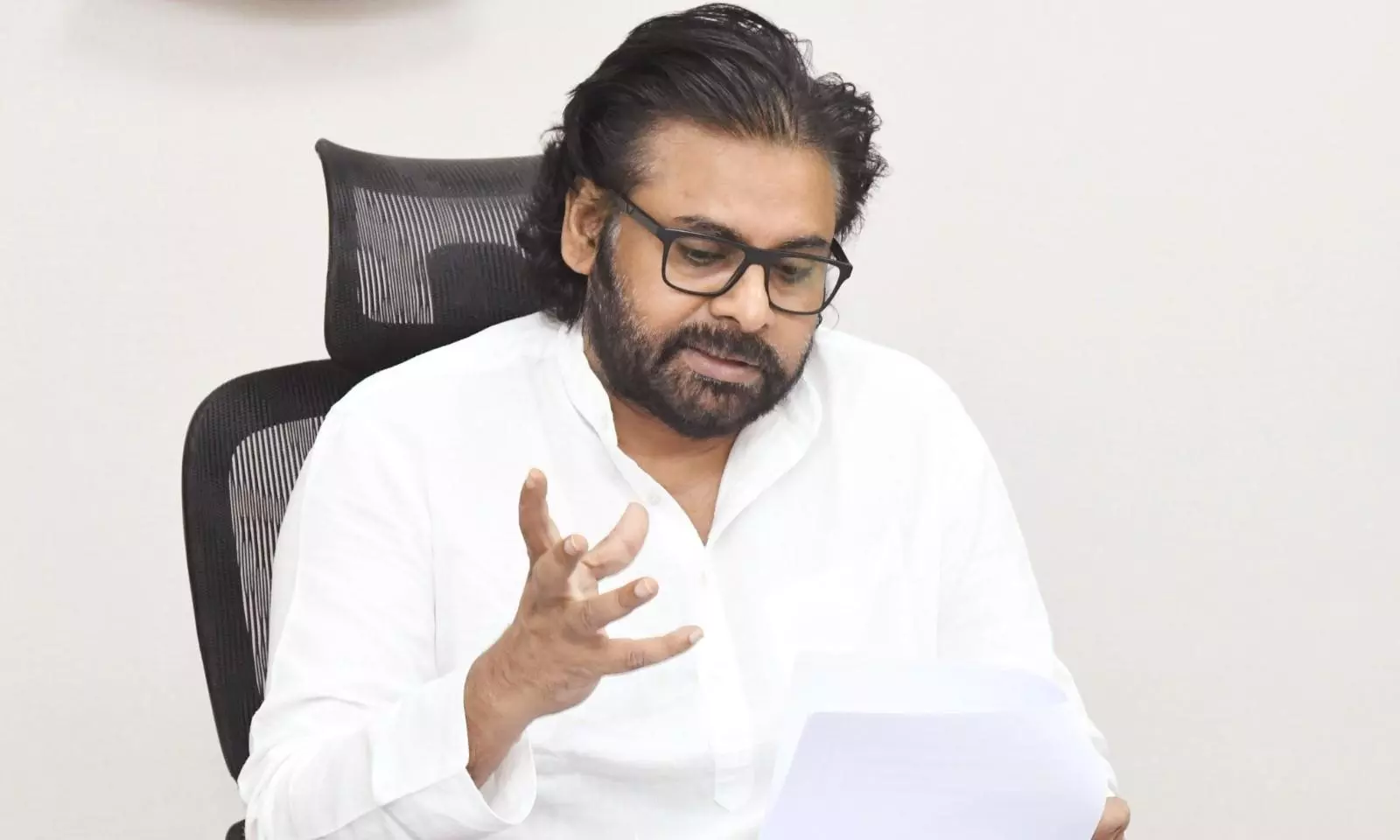
Simultaneous polls major economic reform: Pawan Kalyan asks Stalin to reconsider stand
The ONOE was not merely a political and administrative reform much needed for Tamil Nadu and India but a major economic reform for country, said Pawan Kalyan

Chennai, May 26 (PTI) Andhra Pradesh Deputy Chief Minister Pawan Kalyan, an ally of the BJP government at the centre, on Monday appealed to Tamil Nadu Chief Minister M K Stalin to reconsider his stance against the one nation one election policy and support this major reform in the interest of the nation.
The ONOE was not merely a political and administrative reform much needed for Tamil Nadu and India but a major economic reform for the country.
“It is a constraint of time. Let’s accept ONOE and move forward embracing development,” the Janasena Party chief said.
Addressing a seminar on ONOE organised by the BJP here he said DMK leader M Karunanidhi insisted on simultaneous elections during his tenure as Chief Minister (in 1971). “He wanted this to happen. But, today the sad part is the (same) DMK is opposing it. Those opposing ONOE should go and read Karunanidhi's argument in his autobiography 'Nenjuku Neethi' in favour of simultaneous elections,” Kalyan said.
He claimed that then Karunanidhi urged the centre to constitute a committee to restore simultaneous elections. “That's exactly what is being done today. The national leadership is implementing the vision of none other than Karunanhdi, his thought. It is strange and bizzare that M K Stalin is opposing what his father has proposed. We should all look into it,” he said.
Also, he requested Stalin to revisit the Tamil Nadu Assembly resolution opposing ONOE and consider strengthening India’s democratic framework by enhancing the efficiency of governance, optimising resource allocation and fostering national coalition.
Hailing from a regional party himself, he could understand the concerns of the DMK such as Hindi ‘imposition’ and other issues, the Janasena Party leader said and claimed that his party gained a foothold.
“Political stability and having a foothold is different. Our individual agenda should not hamper the growth of the people. It should create stability for people, not instability,” he added.
As to the DMK’s concerns on federalism and state autonomy, he said these issues could be sorted out through a dialogue. “We will see that we have enough robust constitutional safeguards and phased implementation approach that respects India’s diverse regional entities. I request the Tamil Nadu Chief Minister to reconsider and take this ONOE policy decision forward,” Kalyan appealed.
Justifying the move to conduct simultaneous elections, he said continuous elections created a near perpetual elections cycle where political parties and administration were continuously engaged in election related activities. “Where is the time for growth, stability and economic prosperity? The focus of consistent governance is inevitably diluted,” he claimed.
On the other hand, the opposition parties were engaged in electoral strategies and electioneering and gave hardly any attention to fighting for public cause. India in a constant state of election preparedness and political parties always in a campaign mode were not signs of healthy democracy.
He criticised the DMK and its allies for terming the ONOE as anti-federalism and asked them if that was the case then why did Karunanidhi, whom they regard as champion of federal rights, support simultaneous election.
On his long association with Tamil Nadu, Pawan said the state, which was the soil of savant Thiruvalluvar, national poet Subramaniya Bharati, iconic leaders like M G Ramachandran, Jallikattu sport, Siddhars and Land of Murugan, greatly influenced him. PTI

